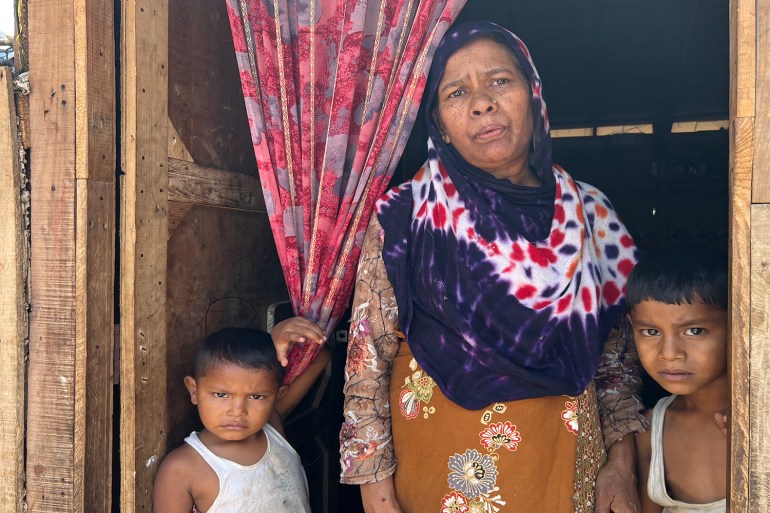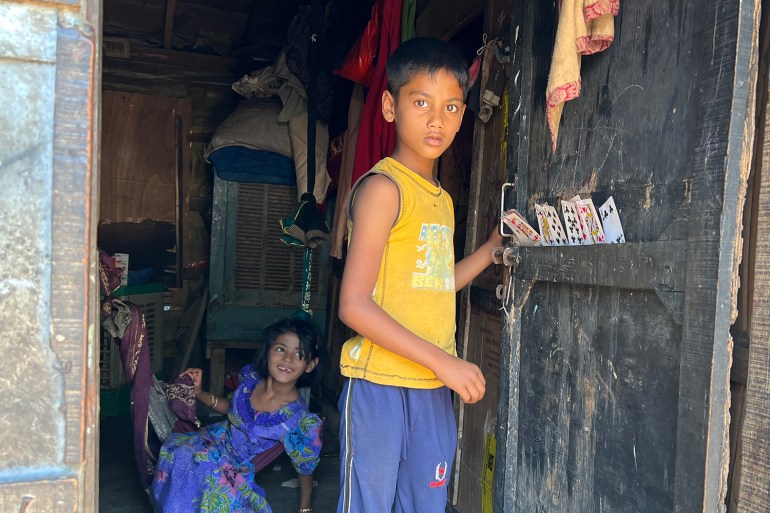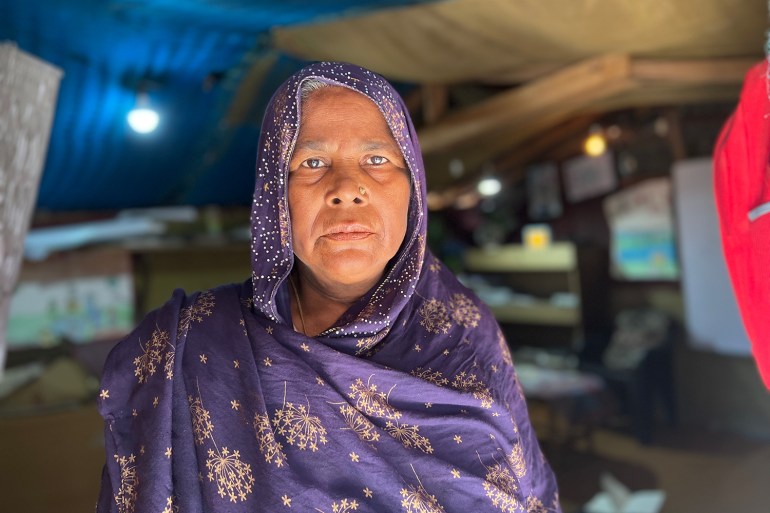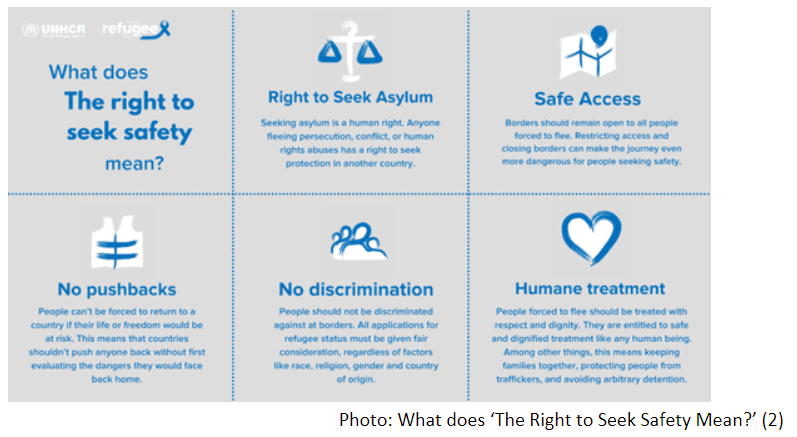
Daughters and Sons of Gastarbeiters writers′ collective"When I go to Germany, I will buy a red tractor"
Ok-Hee Jeong was eight when her parents sent for her and her two brothers, bringing them to Germany. Her arresting short story, told from a child′s perspective, describes her reunion with her mother at the airport. They had not seen each other for years. A pair of shoes that her mother had sent to her and her grandmother, who had brought her up, was the only evidence that the thousands of kilometres between South Korea and West Germany had not shattered the bond of love between mother and daughter.
And now here was this jaded, overtired woman standing in front of her. Was this really her mother? Perhaps it was safer to use the formal style of address with this woman. As a child, says Ok-Hee, this separation from her parents seemed normal. It was only later that she confronted her mother about it. How could she bear to leave her and her sister behind?
The "suitcase children"
Ok-Hee′s story is far from unique. In fact, among children of the first generation of "guest workers", who came to Germany from all over the world, it is the norm. Families and fates torn asunder. So-called "suitcase children", who were sent back and forth between Germany and their family′s homeland. Parents who only wanted the best for their families, but discovered that they had distanced themselves from their homeland, without having found a new one.

The authors′ families come from countries such as Turkey, Serbia, Greece and Pakistan. Their stories draw on what their parents have told them, their own experiences, memories and diary entries. The authors′ stories are very personal and revealingly honest.
Sentences such as "When I go to Germany, I will buy a red tractor" from the author Cicek Bacik, writing about her father, give an idea of the unrealistically high expectations that made their parents′ generation leave their homeland behind. The short stories make up a mosaic of incredibly different experiences which, however, have a core of similarity. Above all, they illuminate a fundamental component of post-war German history, the different facets of which remain unknown to many of us.
Cicek Bacik is the initiator of the writers′ collective. The first reading took place at the start of 2015, to great acclaim. Initially, she says, their primary aim was to explore their own stories. "To reflect in a purposeful way on what our parents achieved. That′s something we have neglected for years."
Against "them" and "us"

Firstly, then, the authors′ stories explore their own personal history. And secondly, they are also adding their own voices to the discourse in Germany. Even today, Bacik says, she still observes an "us" and a "them" in German society. She still sees people emphasising the differences between Germans and those who moved to Germany later.
The authors want to write against this black and white picture. "It′s finally time to reflect on this element of the last 60 years and to make our perspective, our views, part of this discussion and have them reflected in the history books, too," she says.
The stories of migration are as different as the people themselves. There is a factory worker who plans to spend a few years working in Germany before returning to his Anatolian village, but who soon sees that life has other plans for him.
There is Shlomit Tulgan′s mother, Melek, an Islanbul Jew who boards a train in search of adventure and travels to Germany, where she meets another Istanbul Jew at a demonstration and marries him.
On a mission to belong
Then there is Zoran Terzic′s family. His father is a doctor and his mother a doctor′s assistant from the former Yugoslavia. In 1974, the family moves to the small Bavarian town of Kirchenlamitz. Terzic draws an intelligently observed and darkly humorous picture of the bourgeois environment in which he grew up.
His parents, who are on a "mission to belong, no matter where," do their best to lead a bourgeois life and alienate the "aborigines", who have specific ideas and expectations of what foreigners should be like. To the point that an old lady, seeing the bourgeois furnishings of the family′s flat, reacts in such a way that in little Zoran′s eyes, she goes "from being a nice German to being a typical German."
So far, twenty authors have contributed to the project and more continue to join. It looks as if a whole generation of new Germans are burning to tell their stories, as well as those of their parents and grandparents. The texts are love letters or indictments to their parents, a search for answers from their own childhoods, or collections of droll anecdotes.
But above all, the authors′ texts pay respect to their parents′ generation, who built a life for themselves, usually under extremely difficult conditions. The authors are putting down on paper stories that were passed down orally – thus making their own voices and those of their forebears heard.
Ceyda Nurtsch
© Qantara.de
Translated from the German by Ruth Marti

Djinns, migration and racism"You don't have to be Huseyin or Emine to understand"
Ms Aydemir, when your new novel "Djinns" was initially announced, social media was flooded with funny comments about the supposedly scary title. What did you think of that?
Fatma Aydemir: Once I knew I would call the book "Djinns", I didn't even think about people’s reactions. But I too found the title a bit spooky. It does something to you when you deal with the theme of djinns night after night. Then again, my novel really isn’t a ghost story. The comments were funny, especially the many nazar (‘evil eye’) emojis beneath my posts.
In Turkish, people try not to utter the word at all, which is a nice motif, because my story is also about things that are unspoken, that remain hidden. At the same time, it was important to me to write this word and break with the fear, which has a lot to do with ignorance and superstition. Djinns are not fundamentally evil. But people are always afraid of what they cannot see themselves.
"Djinns" tells the story of a family from the different perspectives of its members. How did you approach narrating the story in this way and, above all, creating the different levels?
Aydemir: At first I only had the chapter about Huseyin, the head of the family. While I was asking myself who this character was and how I wanted to continue telling the story, I came up with the idea of going through the family chapter by chapter and giving each member their own perspective. That then became the structure. During the writing process, I realised that it wasn't that easy, because the characters had different relationships to each other, and it became more and more complicated. I then put everything aside and imagined the whole thing like a wall made of bricks. There were gaps in this wall that I had forgotten to fill. So I went back to those parts of the text and threw things out. I re-wrote everything that was crooked.

A novel is not a political statement
A few years ago you published the anthology "Your Homeland is Our Nightmare" with Hengameh Yaghoobifarah and the title still works as a statement. The image of Germany in "Djinns" is also rather bleak, something that German-language critics will likely pick up on. Does that bother you?
Aydemir: I don't mind when the anthology "Your Homeland is Our Nightmare" is mentioned in reviews and at events, or even quoted from my old columns. But sometimes all that is read into the novel, which tells a completely different story. A fictional one at that. It annoys me when everything gets mixed up and my novel is only read under this one aspect. "Germany" per se or "the Germans" don't play such a big role in "Djinns". Migration, on the other hand, does.
But I think it's strange when people focus solely on the image of Germany, or count how many German characters appear in a story and how well or badly they come off. What kind of approach is that to literature? I think that says more about the people, than about my work.
Maybe it has something to do with the fact that the majority of critics are white? How does a non-white person move in the literary world? You are also an editor with the taz newspaper. How do you work with white colleagues, editors, especially when you tell stories from a non-white perspective?
Aydemir: A good novel works universally. It shouldn't matter where you come from, what social background an author has. If it touches you, you will always find a way in. My editor is a white cis-hetero man, I had already worked with him on my debut novel "Elbow". He's insanely good because he has a good eye and gets involved with texts. It also helps to have someone at your side who is far removed from your own reality, because he asks questions when editing that I would never have thought of myself. It is also important to me that my writing appeals to as many people as possible. You don't have to be called Huseyin or Emine to understand the concerns of these characters.
So you don't write for a specific readership?
Aydemir: I am my own first reader. That's the only thing I can do. I write what I would like to read myself and I think I can reach quite a diverse readership with that. I spoke to a bookseller from Franconia who recognised her own mother in Emine, the mother figure in the novel. And then there are readers who ask me, puzzled, whether Turkish and Kurdish families are really so strictly patriarchal or queer-hostile. Yet you only have to look at Germany’s top opinion-makers to see what a state the country’s emancipatory discourse is in.
All the characters are haunted by inner demons
Your novel examines many different themes. Reviewers have complained that it is too ambitious. Is that fair?
Aydemir: It is not unusual for a novel to deal with many themes. Every historical novel does that. And yes, I too asked myself whether it might be too much. But when you tell a story from six different perspectives, there are a lot of aspects to it. Maybe I just have a tendency to overload. I like stories that have a hundred other stories hidden in them.
I would like to ask another question about Emine. In "Djinns" there is a brief moment when the devout mother doubts her faith. Why was that important to you towards the end of the novel? Did you deliberately portray the older generation as more religious than the younger generation?
Aydemir: I am surrounded by many religious people, I wouldn't call myself religious, but I don't fundamentally reject it either. I find it interesting to observe people of faith and to talk to them. And I am convinced that religious people always struggle with their faith. You can't live your whole life according to one thing and never doubt it.
I myself don't act according to religious principles, but of course there are ethical and political values that are important to me. And these also change over time because I question them and have to renegotiate them for myself because I make mistakes. The character Emine also has to re-negotiate many things for herself. That's why it was important to me to make Emine's break perceptible. In the end, it is the rupture that makes her come alive.
You write about a racially motivated arson attack and about racial profiling. In addition, the book was published on the second anniversary of the Hanau attack – have we made any progress at all on the topic of racism or right-wing extremism in Germany in all these years?
Aydemir: I think the biggest progress is that these issues have much more space in the mainstream than they did twenty or thirty years ago. Anti-racist discourse is much more accessible today. That has a lot to do with social media, but also with a changing media industry. I can take up these issues in my taz column, my parents couldn't do that. Or I can talk about racial profiling or arson attacks in my novel. Of course, this still meets with resistance today, especially criticism of police violence. Incidentally, Hakan, whose chapter is about a violent encounter with the police, is the character most readers find disturbing. I wonder if this is a coincidence.
Armin Kurtovic, the father of Hanau victim Hamza Kurtovic, said he only understood what racist police checks can do to a young person after his son's death.
Aydemir: That is very sad. But sometimes it is also one's own parents who talk down experiences of racism or don't want to hear about them because they have no place in their self-image and their view of the world. In "Djinns" it is similar between Hakan and his father Huseyin. The father doesn't want to hear how his son has been the victim of an assault because it shows him his own powerlessness.
I think the strength of the younger generations is that we talk more about racism. We know that our struggles are not just individual problems, but collective struggles. We are no longer alone in this.
Interview conducted by Schayan Riaz
© Qantara.de 2022




 Japanese fans of K-pop boy band BTS, Hori, Tanaka Rina and Ohkubo share a moment at a cafe featuring BTS goods in Seoul, South Korea, June 15, 2022.
Japanese fans of K-pop boy band BTS, Hori, Tanaka Rina and Ohkubo share a moment at a cafe featuring BTS goods in Seoul, South Korea, June 15, 2022.









.png)
